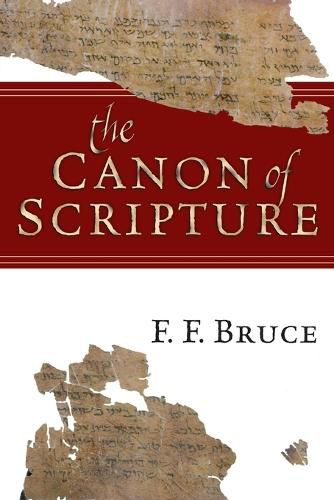Readings Newsletter
Become a Readings Member to make your shopping experience even easier.
Sign in or sign up for free!
You’re not far away from qualifying for FREE standard shipping within Australia
You’ve qualified for FREE standard shipping within Australia
The cart is loading…






This title is printed to order. This book may have been self-published. If so, we cannot guarantee the quality of the content. In the main most books will have gone through the editing process however some may not. We therefore suggest that you be aware of this before ordering this book. If in doubt check either the author or publisher’s details as we are unable to accept any returns unless they are faulty. Please contact us if you have any questions.
Winner of two 1990 Christianity Today Awards: Readers’ Choice (1st place; theology doctrine) and Critics’ Choice (1st place; theology doctrine). A 1989 ECPA Gold Medallion Award winner
How did the books of the Bible come to be recognized as Holy Scripture? Who decided what shape the canon should take? What criteria influenced these decisions? After nearly nineteen centuries the canon of Scripture remains an issue of debate. Protestants, Catholics, and Orthodox all have slightly differing collections of documents in their Bibles. Martin Luther, one of the early leaders of the Protestant Reformation, questioned the inclusion of the book of James in the canon. And many Christians today, while confessing the authority of all of Scripture, tend to rely on only a few books and particular themes while ignoring the rest. Scholars have raised many other questions as well. Research into second-century Gnostic texts have led some to argue that politics played a significant role in the formation of the Christian canon. Assessing the influence of ancient communities and a variety of disputes on the final shaping of the canon call for ongoing study. In this significant historical study, F. F. Bruce brings the wisdom of a lifetime of reflection and biblical interpretation to bear on questions and confusion surrounding the Christian canon of Scripture. Adept in both Old and New Testament studies, he brings a rare comprehensive perspective to the task. Though some issues have shifted since the initial publication of this classic book, it remains a significant landmark and touchstone for further studies.
$9.00 standard shipping within Australia
FREE standard shipping within Australia for orders over $100.00
Express & International shipping calculated at checkout
This title is printed to order. This book may have been self-published. If so, we cannot guarantee the quality of the content. In the main most books will have gone through the editing process however some may not. We therefore suggest that you be aware of this before ordering this book. If in doubt check either the author or publisher’s details as we are unable to accept any returns unless they are faulty. Please contact us if you have any questions.
Winner of two 1990 Christianity Today Awards: Readers’ Choice (1st place; theology doctrine) and Critics’ Choice (1st place; theology doctrine). A 1989 ECPA Gold Medallion Award winner
How did the books of the Bible come to be recognized as Holy Scripture? Who decided what shape the canon should take? What criteria influenced these decisions? After nearly nineteen centuries the canon of Scripture remains an issue of debate. Protestants, Catholics, and Orthodox all have slightly differing collections of documents in their Bibles. Martin Luther, one of the early leaders of the Protestant Reformation, questioned the inclusion of the book of James in the canon. And many Christians today, while confessing the authority of all of Scripture, tend to rely on only a few books and particular themes while ignoring the rest. Scholars have raised many other questions as well. Research into second-century Gnostic texts have led some to argue that politics played a significant role in the formation of the Christian canon. Assessing the influence of ancient communities and a variety of disputes on the final shaping of the canon call for ongoing study. In this significant historical study, F. F. Bruce brings the wisdom of a lifetime of reflection and biblical interpretation to bear on questions and confusion surrounding the Christian canon of Scripture. Adept in both Old and New Testament studies, he brings a rare comprehensive perspective to the task. Though some issues have shifted since the initial publication of this classic book, it remains a significant landmark and touchstone for further studies.